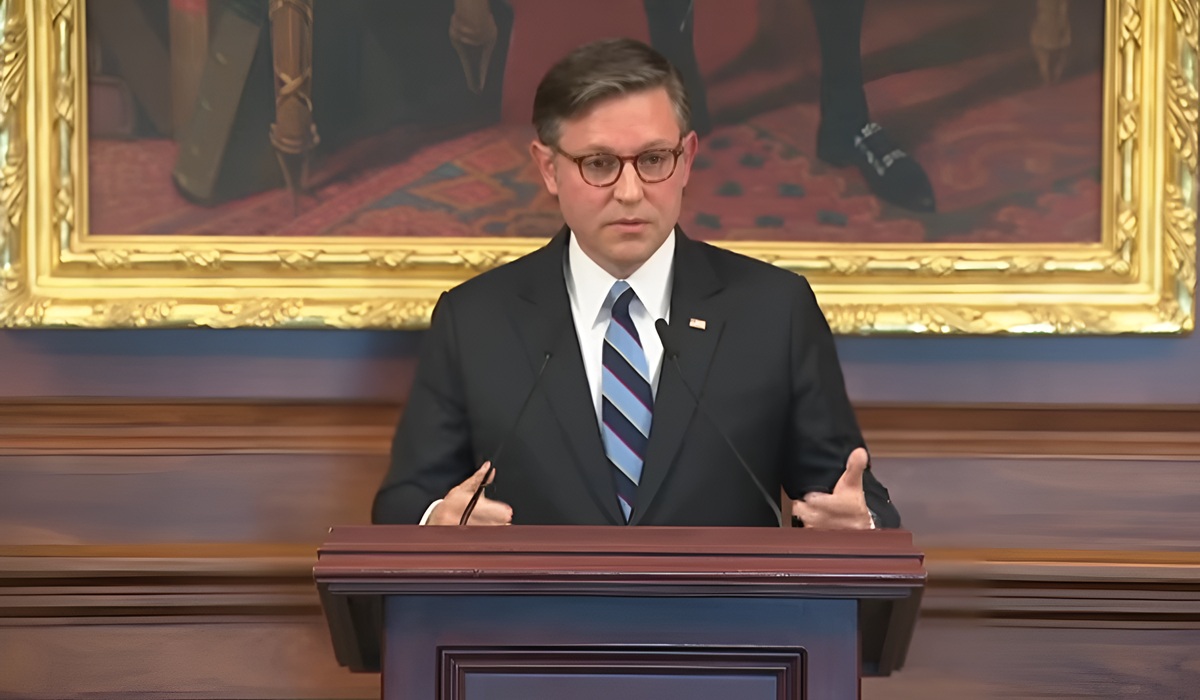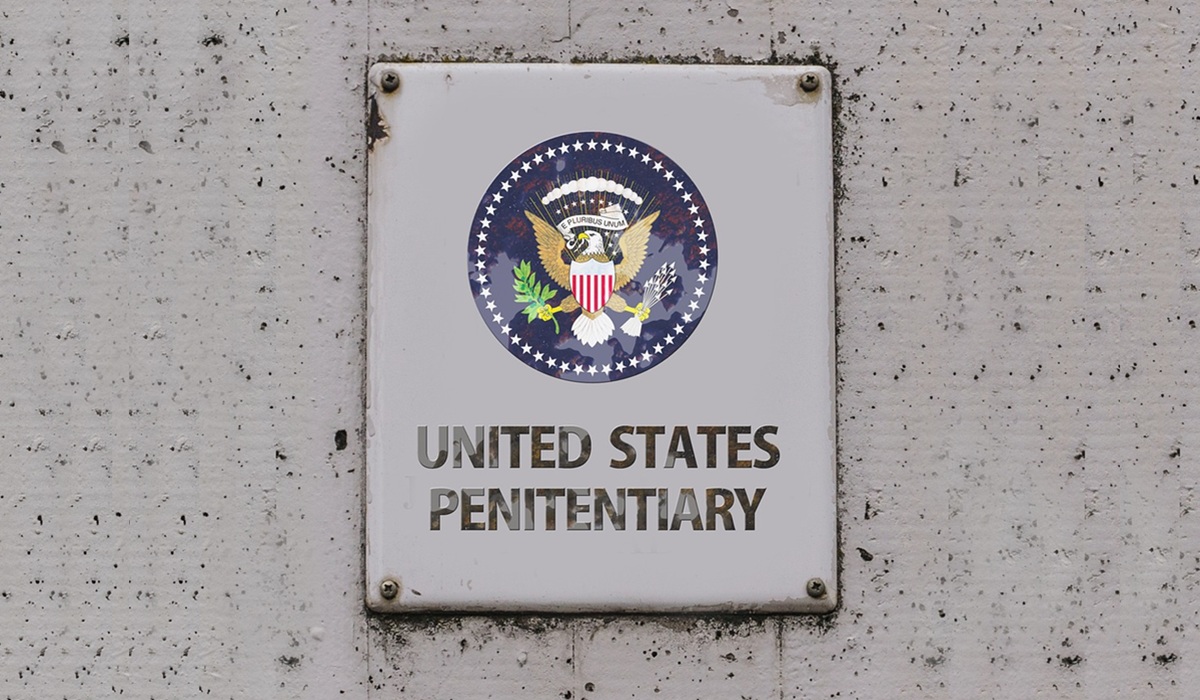By: Donovan Martin Sr, Editor in Chief
Speaker Mike Johnson has never minced words when it comes to assigning blame. In his latest statement, he declared that Democrats are one hundred percent at fault for shutting down Congress and the federal government. In his view, the situation could have been avoided entirely if Senate Democrats had agreed to pass what he calls a clean, twenty-four-page bill that would immediately restore funding to key services and paychecks for troops, veterans, and air traffic controllers. He describes the legislation as simple, bipartisan, and perfect—nothing hidden, no surprises, just a straightforward measure to keep the lights on. Yet, despite his insistence that this bill represents a fair solution, the country once again finds itself paralyzed by gridlock, blame, and political theatre.
The Speaker’s argument hinges on the idea that the House of Representatives has already done its part. From his perspective, the bill is clean, and the Senate is stalling. He insists that the House has control of both chambers in principle, meaning that leadership has the ability to move the legislative process forward without obstruction if only there were enough political will. However, the claim that the House can bypass the Senate is more rhetoric than reality. The U.S. Constitution divides authority deliberately between the two chambers to prevent exactly that kind of unilateral control. Even if the House passes a funding bill, it must still clear the Senate’s procedural hurdles and receive the President’s signature. Saying that one chamber can “make it happen” oversimplifies the complex machinery of government that was designed to require negotiation and compromise.
Johnson’s characterization of his proposal as bipartisan and perfect also raises questions about what “bipartisan” means in the modern political climate. When one side crafts a bill, calls it fair, and demands immediate passage, it becomes less an act of bipartisanship and more an act of political positioning. Democrats argue that the so-called clean bill is not as clean as it appears. They point out that while the bill may not contain flashy ideological riders, it omits key provisions that have tangible consequences. For example, it fails to secure the renewal of important healthcare and family assistance programs that millions depend on. It also avoids addressing the broader fiscal priorities that Democrats view as essential for stability. To them, the bill’s simplicity is not a virtue but a sleight of hand—a minimalist stopgap that fixes nothing while giving the illusion of responsibility.
The heart of the dispute lies not in the text of the bill but in how it is used as a political weapon. For Democrats, agreeing to pass what Johnson calls a clean bill would mean surrendering leverage. They argue that Republicans are asking them to reopen the government with no guarantee of good-faith negotiation afterward. Once the bill passes, they fear, the pressure evaporates, and there would be little incentive for the majority to address any of their priorities. That is why they continue to resist, even at the risk of political backlash. The Speaker says they are obstructing, but Democrats say they are protecting the integrity of the process.
The recurring spectacle of shutdowns and debt ceiling crises has become a defining feature of American governance. Every few years, the same drama unfolds. Deadlines are missed, agencies close, paychecks stop, and the public watches another round of finger-pointing. It is not that Congress cannot fund the government; it is that both parties have learned to use shutdowns as political theatre, each side convinced that the other will suffer more blame in the court of public opinion. What results is a government that lurches from crisis to crisis, treating deadlines as opportunities for leverage rather than responsibilities to be met.
At the root of this dysfunction is a system that rewards brinkmanship. The United States operates under a structure that allows the government to run out of money unless Congress acts affirmatively to extend funding. This gives any faction—majority or minority—the power to hold the process hostage. The debt ceiling compounds the problem. It is not a control on new spending but a cap on the government’s ability to pay for commitments it has already made. Yet, it has been turned into a recurring weapon of political coercion, a self-inflicted wound that undermines confidence both domestically and abroad.
Johnson’s defense of the current bill as perfect ignores the deeper sickness in the system. Even if his version of the continuing resolution were flawless on paper, the larger problem is the pattern. The United States has normalized shutdowns as a bargaining chip, as though halting essential services and jeopardizing pay for federal workers is an acceptable way to conduct governance. Every time this happens, faith in government erodes further. Each shutdown teaches future lawmakers that paralysis is an effective political tool. It has become the language of American politics: the louder the crisis, the greater the leverage.
What makes the situation even more troubling is that everyone involved knows how to prevent it. Congress could pass an automatic funding mechanism that keeps the government open at current levels whenever appropriations bills stall. This would remove the threat of shutdowns altogether, forcing lawmakers to debate policy on its merits instead of weaponizing deadlines. Another solution would be to decouple the debt ceiling from routine funding measures. The ceiling, which was once a technical limit, now functions as a recurring trapdoor that both parties exploit. Eliminating or reforming it would make budgeting a predictable process again rather than an annual hostage situation.
But even beyond structural fixes, there is a cultural problem in Washington. Modern politics rewards confrontation, not collaboration. Lawmakers gain more attention, more airtime, and more campaign donations from fighting than from solving. A quiet, functioning government does not make headlines. A shutdown, however, does. It provides the perfect backdrop for each side to declare moral superiority. The Speaker blames Democrats for shutting down the government; Democrats blame Republicans for manufacturing the crisis. The media amplifies the outrage, the public grows cynical, and nothing truly changes.
In his statement, Johnson claims that the bill on the table is as bipartisan and perfect as possible. Yet if a bill were truly perfect, it would pass without hesitation. The very existence of a shutdown proves the opposite—that what one side calls perfect, the other sees as deeply flawed. Perfection in politics is not about simplicity; it is about balance, about recognizing that compromise is not weakness but the essence of democracy. When either side refuses to move because it fears appearing to lose, governance becomes impossible.
The American system is built on checks and balances, but those checks were never meant to be used as chokeholds. The debt ceiling was not intended as a recurring ransom note. Continuing resolutions were never meant to replace real budgets. Each time Congress relies on short-term patches, it postpones responsibility. The public pays the price through delayed paychecks, frozen benefits, and eroded confidence. At some point, the blame game stops mattering because the entire system starts to look broken.
To fix this, it will take more than procedural tweaks. It requires political maturity—a willingness among leaders to see beyond the next election cycle. The incentive structures in both parties must change so that stability, not chaos, becomes politically rewarding. The Speaker’s frustration may be genuine, but his rhetoric only deepens division. To claim absolute fault lies with one side is to misunderstand the nature of the problem. The fault lies in a political culture that thrives on crisis.
Until that culture changes, Americans will continue to live through these cycles of shutdowns, finger-pointing, and last-minute deals that barely patch the cracks. The country deserves better than a government that turns governance into hostage negotiation. The Speaker can call his bill perfect, but perfection is meaningless if the system itself is built on dysfunction. The fix is not another temporary resolution—it is the resolve to finally grow up as a government, to stop weaponizing procedure, and to remember that leadership means keeping the lights on, not blaming the other side for turning them off.









